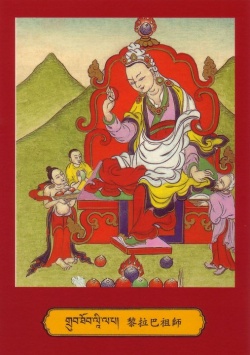Lilapa
Mahasiddha Lilapa… Līlapa / Līlāpāda (sgeg pa): “He Who Loved the Dance of Life”/”The Royal Hedonist”
There was once in the south of India, a king who valued his pleasures and treasures more than anything else. However, the king also enjoyed intelligent conversation, so occasionally scholars are invited to the royal chambers. One day, a wise yogin came to the court and was granted audience. When the king saw his tattered clothing, he was filled with pity and said the yogin must have lead a difficult life. However, the yogin replied that he has no complains and instead he felt much pity for the King instead because of the constant worries and lack of freedom the king have to live with.
Upon hearing the words of the yogin, the king developed faith on the spot and requested the yogin to teach him how to meditate while remaining on his throne in his palace, the king also begged the yogin to remain long enough to teach him.
The yogin agreed by initiating the king into the meditative practices of the deity Hevajra. The king practiced and meditated ceaselessly until he achieved the one-pointed trance of Samadhi and the realization of mahamudra. He achieved all these while seated upon his throne, reclining on cushions of silk, surrounded by his queens and ministers, and entertained by musicians. He became knowh for his wonderful acts of selflessness, and in the end entered the Paradise of the Dakinis.
Lilapa’s story shows us that when the karmic learning and aspirations of the disciple blend harmoniously with the guru’s teachings, there is no need to renounce the pleasures of this life in order to attain liberation.
